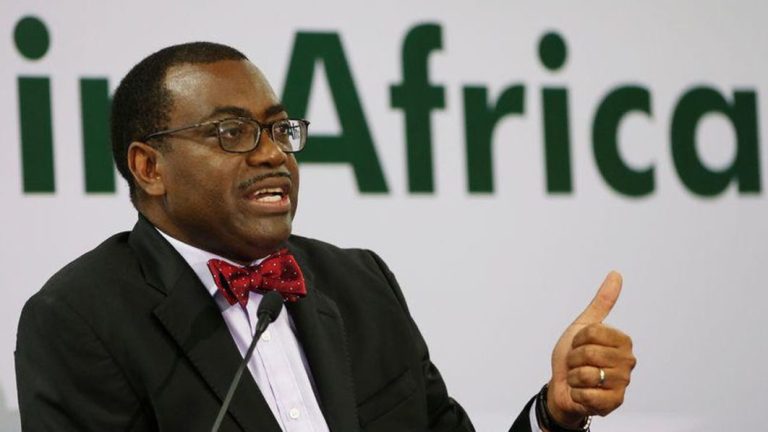President of the Africa Development Bank Group,Dr. Akinwumi Adesina has asserted that Nigeria’s promising future lies in supporting the private sector to unlock wealth and elevate the population’s well-being.
Speaking at the BusinessDay CEO Forum in Lagos over the weekend, Adesina highlighted the revitalization of the dormant manufacturing sector and resolving persistent power challenges as pivotal steps toward engineering an industrial revolution for the nation.
Lamenting that Nigeria still trails behind other contemporary economies despite its vast potential, Adesina strongly advocated for rapid and systematic economic development through private sector-led initiatives.
He argued that the country must move beyond relying solely on foreign exchange reserves and overvaluing the naira, emphasizing the need to expand the supply and availability of forex through export-oriented manufacturing.
“To grow Nigeria’s economy in a transformational way, there is an urgent need to move away from solely depending on “managing a demand for forex” to “expanding the supply and availability of forex” through greater export-oriented manufacturing,” he advocated.
Adesina praised President Bola Tinubu’s bold decision to address distortions in multiple foreign exchange windows, predicting positive impacts on foreign direct investment flows into Nigeria.
He underlined the importance of shifting from an unsustainable import substitution model to embracing an export-oriented approach, which would propel the manufacturing sector towards global competitiveness and wealth creation.
“A well-developed and policy-enabled manufacturing sector, with export orientation will spur greater innovation, accelerate business and investment-friendly industrial policies to drive export market development and structural transformations of the economy,” he said.
“For instance, while Vietnam raked in $348 billion in 2020 from export and the export-led growth, Malaysia’s exports was valued at $234 billion while by contrast, Nigeria’s exports were valued at $29.7 billion. Nigeria’s total export value was a mere $33.5 billion,” he added.
Citing stark comparisons with Asian countries like Vietnam, Malaysia, India, and China, where manufacturing thrives and contributes significantly to export revenues, Adesina urged Nigeria to integrate itself into global and regional value chains, capitalizing on its comparative advantages, specialization, and competitiveness.
The energy deficiency and unreliability, along with exorbitant electricity costs, emerged as major impediments to Nigeria’s industrial progress.
Adesina stressed the urgent need for massive investments in gas, hydropower, and solar systems, as well as efficient utilities to ensure stable power supply for industries.
Furthermore, the state of transport, ports, and logistics infrastructure posed significant challenges to Nigeria’s industrial development. Adesina highlighted the Africa Continental Free Trade Area as a potential avenue for Nigeria to drive export-driven industrial manufacturing, emphasizing the importance of addressing infrastructure bottlenecks and enforcing quality standards.
According to Adesina, the future of manufacturing lies in digitization, where the global digital economy presents immense opportunities for growth.
He recommended the establishment of Skills Enhancement Zones in partnership with industries to upskill Nigeria’s workforce and reduce labor market skills mismatches.
To diversify the economy, Adesina advocated for major policy measures to transform agriculture into a wealth-creating sector, enabling rural economies to thrive.
The unpredictability and scarcity of foreign exchange emerged as a pressing constraint facing Nigerian manufacturers, leading to a substantial decline in foreign direct investment inflows in recent years.
Adesina’s clarion call for supporting the private sector and embracing proactive economic strategies has ignited discussions on charting a course towards a prosperous Nigeria, ensuring that the country’s potential is fully realized.

